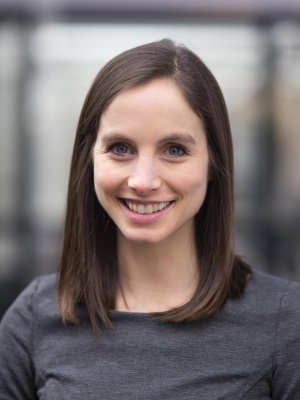New Social Work faculty member partners with Detroit community to prevent child trauma
 How do we prevent adversity early in life? In addition, after a child experiences trauma, how do we ensure that the child can live their best and healthiest life moving forward? For the newest edition to the Wayne State University School of Social Work, Rebeccah Sokol, PhD, MSPH, Detroit provides the perfect opportunity to collaborate with local agencies and community members to advance child trauma prevention.
How do we prevent adversity early in life? In addition, after a child experiences trauma, how do we ensure that the child can live their best and healthiest life moving forward? For the newest edition to the Wayne State University School of Social Work, Rebeccah Sokol, PhD, MSPH, Detroit provides the perfect opportunity to collaborate with local agencies and community members to advance child trauma prevention.
Hired as part of the University's call for researchers focused on the social and behavioral determinants of health, Assistant Professor Sokol joins the School's growing faculty committed to health equity research in urban settings.
Researchers at Wayne State are grounded in addressing local issues that can have global implications. This grounded perspective allows the community members of Detroit-who have rich knowledge of and lived experiences with health disparities-to contribute to the research agenda. I am eager to bring these community perspectives to my work. - Rebeccah Sokol
Prior to joining the School's faculty in Fall 2020, Sokol expanded her knowledge as a behavioral scientist studying youth exposure to adversity while completing a post-doctoral fellowship at the University of Michigan's School of Public Health - Health Behavior and Health Education. Sokol's educational background is rooted in community health and includes a PhD and Master of Science in Public Health from the University of North Carolina-Chapel Hill School of Global Public Health and a Bachelor of Science from Central Michigan University.
Sokol's postdoctoral research focused on identifying if and when social support reduces traumatic stress among children - from primary to tertiary - who have experienced early life trauma. Annually in the United States, millions of children experience trauma-which increases risk for various chronic conditions later in life-but current traumatic stress screening tools do not assess protective factors that non-psychiatric child service providers can leverage to mitigate stress symptoms for children who screen positive. Using secondary data provided by the National Survey of Child and Adolescent Wellbeing, Sokol and her team found that social support-specifically support provided by peers-can not only prevent traumatic stress following adversity, but it can also help children heal from traumatic stress. This suggests that screening for social support and identifying ways to help a child bolster these supports can be an assets-focused means of helping children cope with trauma.
Too often, researchers have focused on deficits-based models that drive health disparities and childhood adversity instead of identifying assets that we can leverage to dismantle health disparities and prevent childhood trauma. I will incorporate this "assets-based" approach into my work to empower social justice in Detroit. - Rebeccah Sokol
While the city of Detroit has a distinct history and set of challenges, it also provides unique opportunities and a strong community filled with members demonstrating great talent. Sokol's work within the community reinforces the School's commitment to engage, build trust, and partner with the community on the creation of new knowledge that benefits the community. Sokol is eager to partner with Detroit-based agencies and incorporate their perspectives into the development of research studies. Specifically, Sokol hopes to develop relationships with the Detroit Public Schools Community District and community-based organizations, as well as partner with the Children's Hospital of Michigan. Building these relationships will enrich the meaning and influence of the research Sokol conducts at Wayne State.
Learn more about Sokol via her faculty profile.